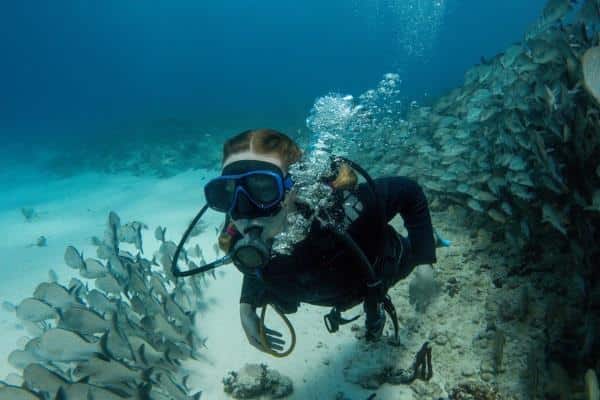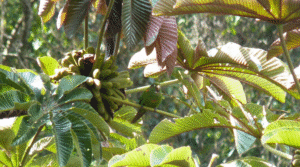Stephen Palumbi is a pioneer in the field of marine biology and genetics. A renowned professor at Stanford University, he has devoted his career to the study of marine ecology, genetics, and the conservation of marine species. His research focuses on the evolution and biology of populations of various marine organisms. He is also recognized for his work on genomic methods aimed at identifying threatened species and developing strategies to preserve marine biodiversity, while addressing the impact of climate change on marine ecosystems.
|
IN BRIEF
|
Stephen R. Palumbi, born on October 17, 1956, in Baltimore, Maryland, is an eminent marine biologist and a renowned professor at the Hopkins Marine Station of Stanford University. With a career dedicated to the study of marine ecology, he has developed groundbreaking techniques in molecular biology to explore and preserve marine life. His training in marine sciences began at the University of Washington, where he obtained his Ph.D. in marine ecology, thus laying the foundation for his rich academic and research career.
Through his work, Palumbi focuses on ecological, evolutionary, and conservation issues related to a wide range of marine organisms. His laboratory, known as Palumbi Lab, integrates evolutionary genetics and molecular ecology methods to address the challenges of marine biodiversity and climate change. This research is vital in a world where ocean ecosystems are experiencing unprecedented pressures from human activities.
Palumbi has gained recognition for his contributions to understanding how marine species adapt to environmental changes. With his expertise in genetics, he has innovatively identified species of cetaceans, seahorses, rockfish, and sharks in retail markets. The use of genetics in assessing biodiversity has enabled scientists and managers to better understand and protect threatened species, making his work an essential asset for marine conservation.
Beyond his research, Stephen Palumbi is also a passionate communicator. He has given numerous talks on human-induced evolutionary change, explaining how certain marine species adapt their genetics in response to growing threats such as global warming and pollution. His work on genomic methods to identify species capable of resisting climate change helps provide practical solutions for the preservation of marine diversity.
His approach is not limited to academia. As an ambassador for marine science, Palumbi is involved in outreach initiatives to promote the importance of sustainability in maritime practices. His commitment to educating the public about marine issues underscores the belief that science should be accessible to everyone, reinforcing the idea that everyone can contribute to the protection of our oceans.
Palumbi’s work has had a significant impact on the field of marine biology, and his legacy is reflected in his academic publications and his influence on modern research. The combination of his commitment to conservation, his scientific expertise, and his communication skills continues to inspire many researchers and ocean enthusiasts around the world. With the ongoing development of synthetic biology and other innovative technologies, Stephen Palumbi’s work remains at the forefront of discussions about the future of ocean research and marine environment preservation strategies.
Stephen Palumbi is recognized as one of the leaders in the field of marine biology and genetics. His work, both in the laboratory and in the natural environment, has contributed to a better understanding of marine ecosystems and the challenges they face. Through his research and innovations, he has successfully combined scientific theory with practical applications to preserve marine biodiversity.
Table of Contents
ToggleAn innovative approach to marine biology
The research of Stephen Palumbi within his laboratory at Stanford focuses on ecological, evolutionary, and conservation issues, using advanced techniques such as evolutionary genetics and molecular ecology. By utilizing these approaches, Palumbi has been able to identify threatened marine species and suggest solutions for their preservation.
The development of genomic methods
Palumbi has been at the forefront of developing genomic methods to help identify ocean species resistant to climate change. His work not only contributes to the conservation of species but also enhances understanding of the impact of human activities on marine ecosystems. These genetic techniques allow for quicker responses to environmental crises.
A call for marine sustainability
His commitment extends beyond research; Palumbi is also an active advocate for marine sustainability policies. By raising public awareness and engaging with decision-makers, he encourages responsible management of marine resources. His involvement in various symposiums, including those on synthetic biology for sustainability, highlights the importance of adopting a collaborative approach to modern environmental challenges.
Impact on contemporary marine research
The contributions of Stephen Palumbi have a significant impact on contemporary marine research. He is credited with advances that enable the identification of biodiversity and informed decisions regarding species protection. His publications, which touch on biology, ecology, and conservation, are frequently cited in the scientific literature.
By integrating research such as that on thermal pulsations on coral reefs, which trigger fine transcriptional responses in corals, Palumbi emphasizes the importance of understanding biological interactions and their implications for ecosystem health. To discover more about his research, you can visit the website of his lab.
To deepen your knowledge of marine biology, also explore articles covering significant research and discoveries in the field here.
Stephen Palumbi is an iconic figure in the field of marine biology and genetics. His career, enriched by innovative research and invaluable contributions to marine conservation, makes him an essential player in understanding and preserving ocean biodiversity. From studying the genetics of marine species to exploring the effects of climate change on them, his impact on the field is undeniable.
A solid education and an impressive academic journey
Dr. Stephen Palumbi earned his Ph.D. at the University of Washington, where he deepened his knowledge in marine ecology. As a professor at the Hopkins Marine Station of Stanford University, he leads a lab focusing on several topics, including evolutionary genetics, population biology, and conservation of marine ecosystems. His academic background and expertise in ecology allow him to explore the complex issues related to marine life. His abilities in data analysis and interpretation have earned him global recognition.
Innovative research and impact on conservation
Palumbi’s work highlights the techniques of evolutionary genetics to identify threatened species and assess their resilience to environmental changes. For example, he has developed genomic methods to analyze the genetic memory of marine species, facilitating the identification of populations that can resist the impacts of climate change. This research, which involves non-invasive methods, not only contributes to the conservation of these species but also opens new avenues for marine biotechnology.
An advocate for awareness and education
In addition to his research work, Palumbi is also a strong advocate for marine conservation awareness. He frequently gives talks on the impacts of human activities on marine ecosystems and advocates for sustainable policies. His efforts extend beyond the laboratory, including initiatives aimed at promoting sustainability and educating the public. His ability to articulate complex scientific concepts in an accessible manner is a valuable asset in inspiring the next generation of scientists.
Recognition and collaborations
Palumbi has received numerous awards for his research work and commitment to ocean preservation. By collaborating with other researchers, particularly during the symposium on synthetic biology for sustainability, he has underscored the importance of interdisciplinarity in marine research. His collaboration with colleagues and organizations such as WWF highlights his role as a leader in the field of marine conservation.
A sustainable legacy and a promising future
With a continuous interest in issues affecting marine ecosystems, Stephen Palumbi continues to deeply influence the field. His scientific work, coupled with his outreach efforts, makes him not only a pioneer in research but also a key player in the movement towards sustainability in marine sciences. Ongoing research from his lab and future projects will continue to open new perspectives on the protection of marine biodiversity and technological innovation.









